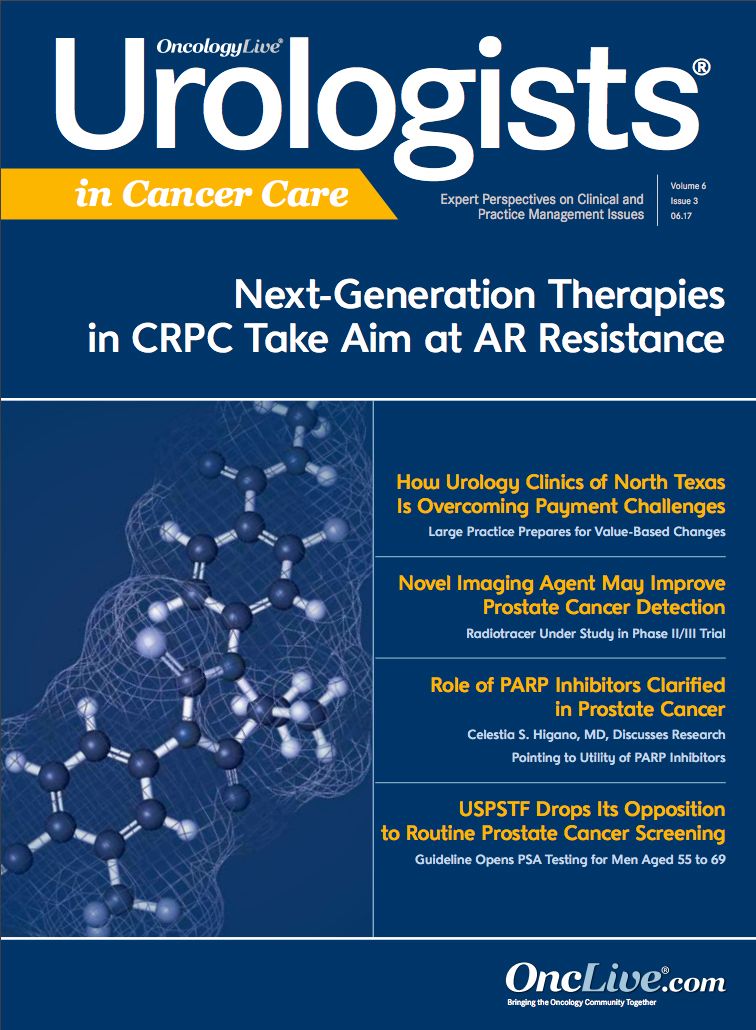Deeper Understanding Leading to Better Care for Patients With Prostate Cancer
Although the past few months have seen several androgen receptor resistance, and described drug approvals for bladder cancer therapies, a wealth of research also is moving the field of prostate cancer forward, since gaining a better understanding of the disease is the best way to find out how to optimally treat—and perhaps ultimately cure—prostate cancer.
OncLive Chairman,
Mike Hennessy
Although the past few months have seen several androgen receptor (AR) resistance, and described drug approvals for bladder cancer therapies, a wealth of research also is moving the field of prostate cancer forward, since gaining a better understanding of the disease is the best way to find out how to optimally treat—and perhaps ultimately cure—prostate cancer.
In our feature article for this issue, “Novel Imaging Agent May Improve Prostate Cancer Detection,” we report on the ongoing OSPREY clinical trial, a phase II/III study investigating a radiotracer that targets prostate-specific membrane antigen. This radiotracer, 18F-DCFPyL, is being tested in patients with high-risk, recurrent, or metastatic prostate cancer, a patient population that needs better imaging and screening methods.
These patients often have cancer that has spread outside of the prostate, and should the OSPREY trial prove positive, there will be a much more effective way to identify and manage them. According to Kenneth J. Pienta, MD, the preliminary data are already looking promising, and he and his colleagues are running this trial with the hope that it could lead to an approval by the FDA. In terms of not only identifying, but also treating patients with prostate cancer, our cover story, “Next-Generation Therapies in CRPC Take Aim at AR Resistance,” we report on a presentation from Robert Dreicer, MD, MS, delivered during the New York GUTM: 10th Annual Interdisciplinary Prostate Cancer Congress® and Other Genitourinary Malignancies.
Dreicer detailed the various mechanisms of strategies for treating patients with AR resistance. Currently, initial management of a patient with metastatic castration-resistant prostate cancer (CRPC) includes assessing the duration of response to androgen deprivation treatment, and then administrating AR-directed therapy. Physicians can choose between the AR inhibitors abiraterone acetate (Zytiga) and enzalutamide (Xtandi), and monitor patients for response to the initial agent. However, 15% to 25% of patients experience de novo resistance to AR inhibitors. We must nd therapies that counteract this resistance, so patients can be treated without encountering this obstacle. Fortunately, there are agents undergoing development to treat CRPC with AR resistance. However, a challenge for these new agents, as Dreicer noted in his presentation, is that they are not being studied comparatively.
We must push forward with these investigations, and make sure the research is giving enough meaningful data to truly help these patients. I am confident that the distinguished researchers and dedicated practitioners who care for patients with prostate cancer will find more answers.
We will continue to follow the development of research in these areas with great interest and diligence. Thank you for reading.




